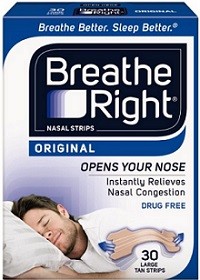- Home
- Better Memory
- Sleep and Memory
- Better Sleep
How to Get Better Sleep
Achieving better sleep at night will improve your memory, mood, and energy level the next day. This page has helpful tips on how to get a good night's rest.
Try and improve the quality of your sleep. If you toss and turn all night, your brain is going to be negatively affected.
So avoid the late-night caffeine, and if you have allergies or some other condition that affects sleep quality, see your doctor for solutions.
There are also lots of inexpensive sleep aids that many people find helpful.
Here are some specific ideas on getting better sleep.
Go easy on caffeine during the day. If you drink more than two cups of coffee or the equivalent in soda during the day, your sleep at night is likely to be affected.
Darken your bedroom. Many people report sleeping much sounder in a very dark room. Evidently light waves are registered by the brain unconsciously, even when you are sleeping.
If your brain thinks it's daytime because of a light source (even a dim one like the light on the front of a DVD player or smoke detector), it might make your sleep more restless.
Rather than fight with all potential light sources, I use a handy little tool called a sleep mask
to keep my room "dark". I actually received my mask for free during a long airline flight once.
You've seen these masks. They cover your eyes in front and stay on your head using two elastic bands that go around your head.
If outside lighting from street lamps, etc. comes into your bedroom at night, consider hanging blackout curtains
over your bedroom window. I have these, and they work well.
Eliminate allergy problems. If your nose is clogged at night, your sleep is likely to be very restless.
Like a lot of people, I have an allergy to all kinds of things that float in the air or live in fabric. Pollen, ragweed, dust mites, you name it.
The best way to defeat this that I've been able to find are flexible nasal strips. These gently pull open your nostrils and allow you to breath more freely. Any grocery will have these.
If you take over-the-counter allergy medicine, be careful not to overuse antihistamines such as chlorpheniramine or Benadryl. These anticholinergic drugs have been linked to increased risk of memory loss.
Replace that mattress! I recently replaced my old, uncomfortable waterbed mattress with a new inner-spring Spring Air mattress. It wasn't cheap, but I have never slept better in my life.

A new mattress is an investment. You spend a fourth of your life sleeping. It makes sense to sleep on a bed that gives you a good nights rest.
Those of you tossing and turning at night should think about whether your crummy mattress is the cause.
Update: It has been a few years since I purchased that mattress, and now it is lumpy and uncomfortable. As soon as I can save enough for a new mattress, I am going to take a very close look at the inflatable Sleep Number beds.
- Don't eat late at night. Researchers have found that eating late at night disrupts sleep cycles and memory consolidation in the brain.
Midnight snacks, and even late dinners, short-circuit important processes in the hippocampus. New experiences are less likely to be recorded into long-term memory. Plus you won't sleep as soundly.
An occasional late meal or snack probably won't hurt. But if you regularly eat late, you're ability to learn and remember is likely being weakened. Experts recommend eating no later than 3 hours before bedtime.
Listen to soothing music. In the evening and especially right before bed, play your favorite, most relaxing CDs. Relaxing the mind with music before retiring to bed is a very effective way to get better sleep.
Try journaling before you fall asleep. Many people (including me) keep a journal to record the many interesting things that happen each day. Journaling itself is a form of memory, since it provides you with a written memory of your life's events.
Journaling immediately before bed can help relax the mind in preparation for sleep.
Crank up the mood machine. Little noises during the night, such as an airplane flying overhead or a car passing by your house, can interfere with better sleep even if you don't consciously notice it.
An easy way to drown out such noises is by using a mood machine to create "white noise" in the background. These devices usually allow you to select from a variety of soothing noises, including rain, waterfalls, ocean waves, and so on. You can find these at any Wal-Mart.
Block blue light at night. Blue light from electronics interferes with the body's sleep cycle. But you don't need to turn off your tablet, smart phone, and TV at sunset. Use software and/or special sunglasses to block the blue wavelengths instead.
Take a hot shower or bath before bed. Hot water helps relax the body. Taking a hot shower or bath soon before you go to bed should help improve your ability to fall asleep and stay asleep.
Avoid the midnight snack. Eating in the middle of the night will disturb your sleep once you go back to bed. The reason is now you have a glob of food on your stomach that you have to digest. If you must eat something, make it very light and protein-based - like a little cottage cheese or a protein powder drink.
Talk to your doctor. If you have trouble falling asleep or staying asleep no matter what you try, then consider discussing your situation with your doctor. You might have sleep apnea or another sleep disorder. Researchers believe that over 90 million Americans have some type of sleep-related disorder.
Face to the South. Here's an unusual suggestion from a visitor to this site named Namrata:
"While sleeping, face your head towards the southern side. I have tried it, and it literally works in getting deep, better sleep."
Try Yoga Breathing. Namrata also suggests a simple yoga-inspired breathing exercise to prepare your mind and body for sleep:
"Before sleeping, take three deep breathes, eyes closed. This simply relaxes the brain and helps us in getting sleep."
Sleep Environment Instead
Sleep on Your Side. Side-sleeping helps the brain clean itself of toxins, according to research.

My journals, 1996-present
Working on getting better sleep might actually be more important than trying to just find more time for sleep. If you absolutely cannot find more than six hours to sleep a night, it certainly makes sense to do whatever you can to get the most benefit from those six hours.
Published: 01/02/2011
Last Updated: 06/11/2020

Newest / Popular
Multiplayer
Board Games
Card & Tile
Concentration
Math / Memory
Puzzles A-M
Puzzles N-Z
Time Mgmt
Word Games
- Retro Flash -
Also:
Bubble Pop
• Solitaire
• Tetris
Checkers
• Mahjong Tiles
•Typing
No sign-up or log-in needed. Just go to a game page and start playing! ![]()
Free Printable Puzzles:
Sudoku • Crosswords • Word Search








